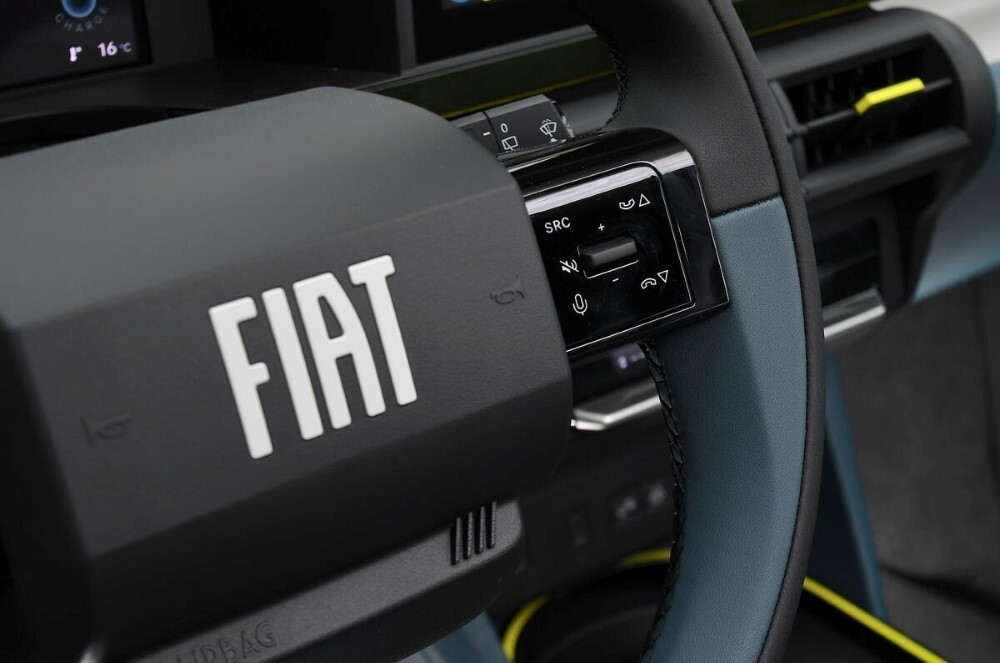

A symbol of Italian ingenuity and style on wheels, Fiat has always managed to grab the spotlight. Be it for their stylish outlook or for their comfort, Fiat has always tried to stand above people’s expectations. This time, the Italian automobile manufacturer has made headlines by becoming the first carmaker to incorporate PolyAl for its flagship Fiat Grande Panda.

This clearly proves that the aluminium recycling market is not just booming but also coming up with endless possibilities. Each Fiat Grande Panda model includes PolyAl, a recycled composite extracted from the thin layers of polyethylene and aluminium found in everyday drink cartons. Derived from around 140 recycled beverage cartons, now cleverly repurposed into the car’s central console, dashboard, and interior front and rear door panels – Fiat isn’t just making cars but a statement that the road to sustainability can be stylish, smart, and circular.
But what exactly is this PolyAl? This is a composite made of polyethylene (PE) and aluminium (Al) that comes from the non-paper layers of beverage cartons. While the paperboard (about 75 per cent of a typical carton) has long found a second life as high-quality paper pulp, the remaining 25 per cent, a blend of plastic (20 per cent) and foil (5 per cent), has traditionally been harder to reclaim. That’s where PolyAl steps in, transforming what was once waste into sleek, functional automotive finishes.
Tetra Pak- a key player in the beverage carton world
Tetra Pak, a key player in the beverage carton world, has been instrumental in building the PolyAl ecosystem. Working closely with recyclers and compound manufacturers, the company has helped push the boundaries of what this material can become. The collaboration with Fiat marks a milestone in that journey.
The car’s interior components are crafted from Lapolen Ecotek, a PolyAl-based compound developed by Italy’s Lapo Compound. Together with Fiat, they fine-tuned the material to meet the brand’s exacting standards ensuring sustainability, top-tier quality, and competitive pricing. It’s a powerful example of how creative partnerships can turn packaging waste into premium product design.
“We believe in creating products that not only meet strict quality standards but also help contribute to a circular economy by keeping valuable materials in use. Our product innovation has successfully met this technical challenge for Fiat, which is a testament to our dedication to sustainable innovation that supports a journey toward a more circular, responsible future,” said Giuseppe Crisci, general manager at Lapo Compound.
Major leap forward towards sustainability
In a bold statement on both sustainability and style, Fiat has placed PolyAl not in hidden compartments but front and centre in the Grande Panda’s interior on the dashboard, door panels, and centre console. According to Tetra Pak, this deliberate design choice highlights the aesthetic potential of the recycled material, which shimmers subtly thanks to its embedded aluminium content. Fiat was particularly drawn to this effect, as well as Lapo Compound’s ability to match the carmaker’s signature shade of blue precisely.
More than just a design flourish, the move signals a major leap forward for recycled materials in automotive manufacturing. Tetra Pak noted that Fiat’s integration of PolyAl into a mass-market vehicle proves the material’s viability at scale. The Grande Panda is already rolling out across most of Europe, with global availability expected by year’s end.
The collaboration with Lapo Compound also aligns closely with the European Commission’s End-of-Life Vehicles Proposal, which calls for 25 per cent recycled plastic in new cars. With its Lapolen Ecotek compound used in Fiat’s interiors, Lapo is paving the way for more applications. Trials are already underway for outdoor furniture and industrial flooring, demonstrating that PolyAl’s future extends far beyond the open road.
Responses








